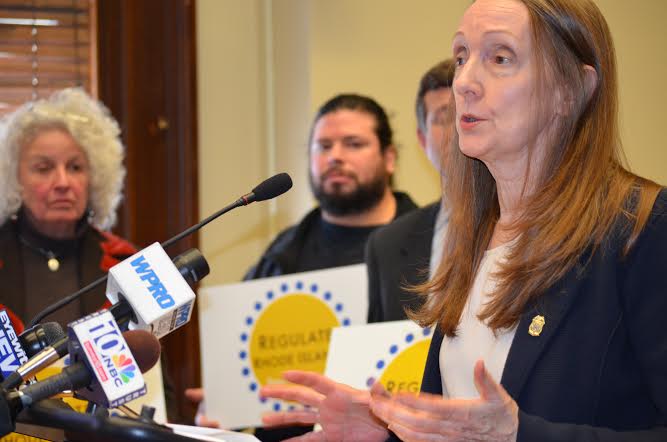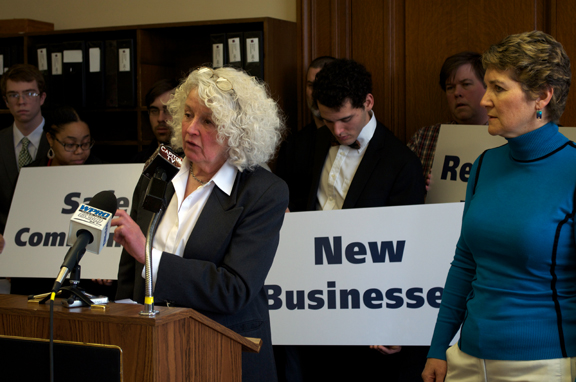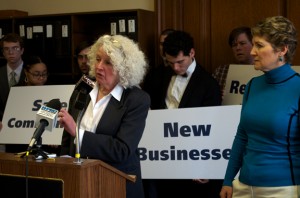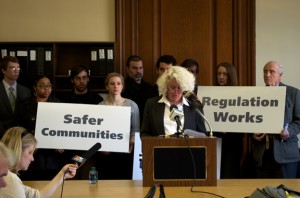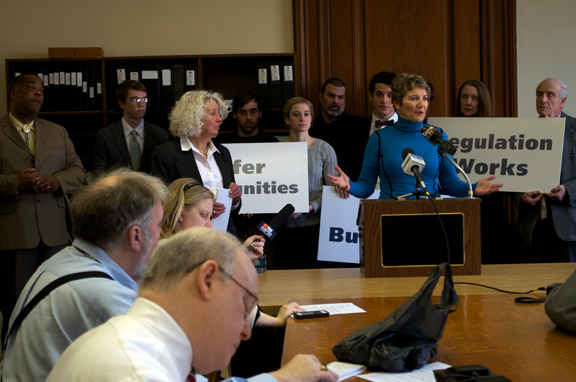
Marijuana made it into the local news in two very different ways yesterday.
At the State House, two legislators announced they will again push a bill to legalize, tax and regulate marijuana like alcohol. Meanwhile, far away from the state capital near the Connecticut border, three young men were arrested for growing and selling pot.
Sen Josh Miller and Rep Edith Ajello spoke about how regulation can help keep cannabis away from kids and create revenue for the state and small businesses.
“Marijuana prohibition has been a long-term failure,” Miller said yesterday. “Forcing marijuana into the underground market ensures authorities have no control of the product. Regulating marijuana would allow the product to be sold safely and responsibly by legitimate businesses in appropriate locations.”
Earlier in the week, Rhode Island and Connecticut police seized more than a half million dollars in cash and product from a group of entrepreneurs who had evidently put together a not-so-small agricultural operation in spite of the law.
“In total, the search warrants resulted in the seizure of 248 marijuana plants, over 46 pounds of processed marijuana and $312,678 in United States Currency,” said a press release from the Rhode Island state police.
Miller and Ajello’s bill would put a $50 excise tax on every ounce of wholesale marijuana sold to a state-sanctioned store (much like liquor stores in Rhode Island). That means Rhode Island missed out on more than $30,000 in revenue from this one bust. The bill would also put a 10 percent tax on the retail sale of marijuana. That’s another $30,000 in revenue the state missed out on, assuming the confiscated cash was from the sale of said marijuana.
“Taxing marijuana sales will generate tens of millions of dollars in much-needed tax revenue for the state, a portion of which will be directed towards programs that treat and prevent alcohol and other substance abuse,” Ajello said at yesterday’s State House press conference.
Meanwhile, Rhode Island state police said more than 10 law enforcement agencies worked since January to arrest three people for growing and selling a plant. No guns and no other drugs or contraband was identified. Police did say Rhode Island medical marijuana cards were being misused, but that may be an indication that the three men are willing to comply with the law if the law were to recognize their very profitable business model.
“Marijuana prohibition is a failed policy, and when a law is broken it needs to be fixed,” said Jared Moffatt, of Regulate Rhode Island, the grassroots group working to take pot off the streets and put it onto the tax rolls. “Regulating marijuana is the solution because it will take control away from illegal dealers, and it will improve the Rhode Island economy by generating tax revenue and creating jobs.”
Even though a recent poll shows a majority of Rhode Islanders support legalizing marijuana, pundits have said politicians are unlikely to act on the tax and regulate bill this year because it is an election year.

